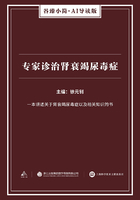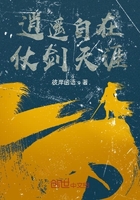In this last case no scruple seems to be felt about communicating a man's name to strangers, and no ill effects appear to be dreaded as a consequence of divulging it; harm is only done when a name is spoken by its owner. Why is this? and why in particular should a man be thought to stunt his growth by uttering his own name? We may conjecture that to savages who act and think thus a person's name only seems to be a part of himself when it is uttered with his own breath; uttered by the breath of others it has no vital connexion with him, and no harm can come to him through it. Whereas, so these primitive philosophers may have argued, when a man lets his own name pass his lips, he is parting with a living piece of himself, and if he persists in so reckless a course he must certainly end by dissipating his energy and shattering his constitution. Many a broken-down debauchee, many a feeble frame wasted with disease, may have been pointed out by these ****** moralists to their awe-struck disciples as a fearful example of the fate that must sooner or later overtake the profligate who indulges immoderately in the seductive habit of mentioning his own name.
However we may explain it, the fact is certain that many a savage evinces the strongest reluctance to pronounce his own name, while at the same time he makes no objection at all to other people pronouncing it, and will even invite them to do so for him in order to satisfy the curiosity of an inquisitive stranger. Thus in some parts of Madagascar it is taboo for a person to tell his own name, but a slave or attendant will answer for him. The same curious inconsistency, as it may seem to us, is recorded of some tribes of American Indians. Thus we are told that the name of an American Indian is a sacred thing, not to be divulged by the owner himself without due consideration. One may ask a warrior of any tribe to give his name, and the question will be met with either a point-blank refusal or the more diplomatic evasion that he cannot understand what is wanted of him. The moment a friend approaches, the warrior first interrogated will whisper what is wanted, and the friend can tell the name, receiving a reciprocation of the courtesy from the other. This general statement applies, for example, to the Indian tribes of British Columbia, as to whom it is said that one of their strangest prejudices, which appears to pervade all tribes alike, is a dislike to telling their namesthus you never get a man's right name from himself; but they will tell each other's names without hesitation. In the whole of the East Indian Archipelago the etiquette is the same. As a general rule no one will utter his own name. To enquire, What is your name? is a very indelicate question in native society.
When in the course of administrative or judicial business a native is asked his name, instead of replying he will look at his comrade to indicate that he is to answer for him, or he will say straight out, Ask him. The superstition is current all over the East Indies without exception, and it is found also among the Motu and Motumotu tribes, the Papuans of Finsch Haven in North New Guinea, the Nufoors of Dutch New Guinea, and the Melanesians of the Bismarck Archipelago. Among many tribes of South Africa men and women never mention their names if they can get any one else to do it for them, but they do not absolutely refuse when it cannot be avoided.
Sometimes the embargo laid on personal names is not permanent; it is conditional on circumstances, and when these change it ceases to operate. Thus when the Nandi men are away on a foray, nobody at home may pronounce the names of the absent warriors; they must be referred to as birds. Should a child so far forget itself as to mention one of the distant ones by name, the mother would rebuke it, saying, Don't talk of the birds who are in the heavens.
Among the Bangala of the Upper Congo, while a man is fishing and when he returns with his catch, his proper name is in abeyance and nobody may mention it. Whatever the fisherman's real name may be, he is called mwele without distinction. The reason is that the river is full of spirits, who, if they heard the fisherman's real name, might so work against him that he would catch little or nothing. Even when he has caught his fish and landed with them, the buyer must still not address him by his proper name, but must only call him mwele; for even then, if the spirits were to hear his proper name, they would either bear it in mind and serve him out another day, or they might so mar the fish he had caught that he would get very little for them. Hence the fisherman can extract heavy damages from anybody who mentions his name, or can compel the thoughtless speaker to relieve him of the fish at a good price so as to restore his luck. When the Sulka of New Britain are near the territory of their enemies the Gaktei, they take care not to mention them by their proper name, believing that were they to do so, their foes would attack and slay them. Hence in these circumstances they speak of the Gaktei as o lapsiek, that is, the rotten tree-trunks, and they imagine that by calling them that they make the limbs of their dreaded enemies ponderous and clumsy like logs. This example illustrates the extremely materialistic view which these savages take of the nature of words; they suppose that the mere utterance of an expression signifying clumsiness will homoeopathically affect with clumsiness the limbs of their distant foemen. Another illustration of this curious misconception is furnished by a Caffre superstition that the character of a young thief can be reformed by shouting his name over a boiling kettle of medicated water, then clapping a lid on the kettle and leaving the name to steep in the water for several days. It is not in the least necessary that the thief should be aware of the use that is being made of his name behind his back; the moral reformation will be effected without his knowledge.















